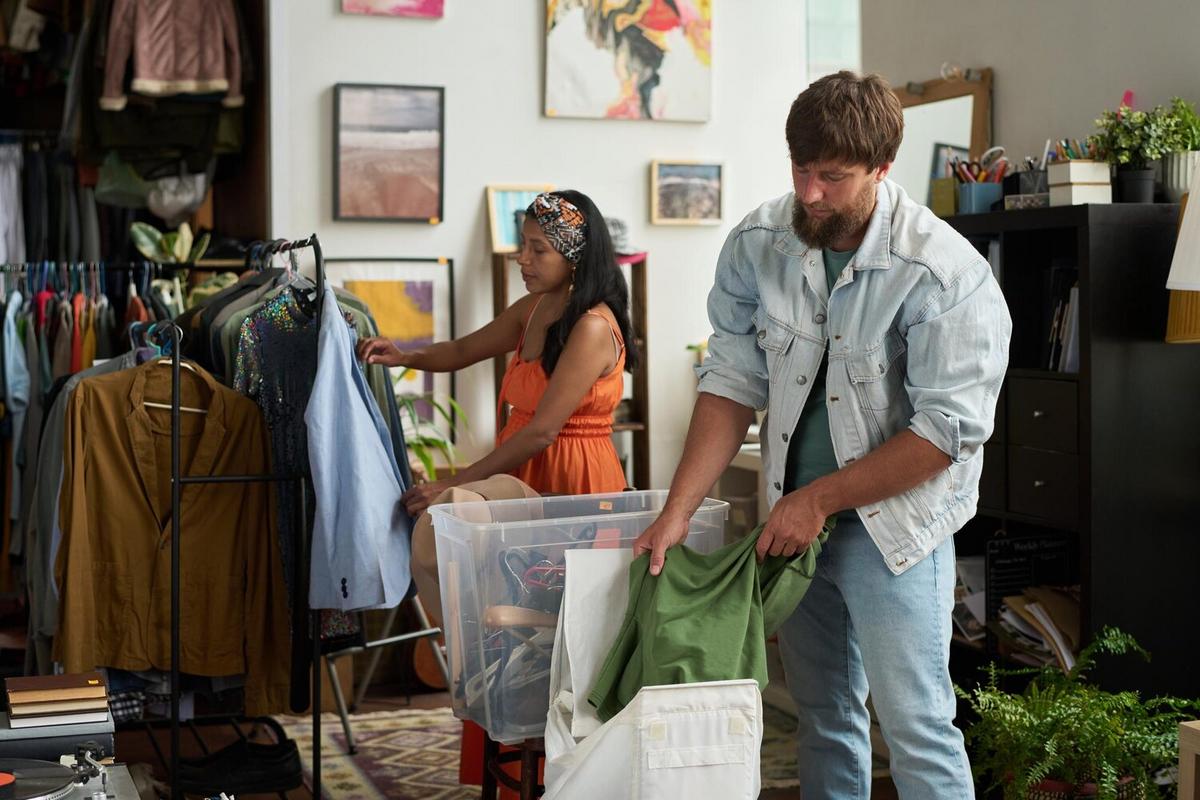Shopping secondhand has become a popular trend, not only as a way to save money but also as a means to support sustainable living. In this blog post, we’ll explore the best ways to shop secondhand, offering expert advice, personal anecdotes, and actionable tips to help you make the most out of your thrifting adventures.
Why Shop Secondhand?
Shopping secondhand is more than just a budget-friendly option. It supports sustainability by reducing waste and promoting the reuse of items. According to a report from ThredUp, the secondhand market is projected to reach $77 billion by 2025, highlighting its growing popularity and importance.
“Thrifting is not just about finding a bargain; it’s about discovering a unique piece with a story.” – Sarah Johnson, Sustainable Fashion Expert
Expert Opinions and Research
Experts agree that secondhand shopping is a key component of sustainable living. A study by the Ellen MacArthur Foundation found that extending the life of clothes by just nine months can reduce their carbon, water, and waste footprints by 20-30%. This makes thrifting a powerful tool in the fight against climate change.
Personal Anecdotes
One of my favorite secondhand finds was a vintage leather jacket I picked up at a local thrift store. Not only did it cost a fraction of the price of a new one, but it also added a unique flair to my wardrobe. Every time I wear it, I get compliments and questions about where I found such a distinctive piece.
Actionable Tips for Shopping Secondhand
- Research Local Stores: Start by researching local thrift stores, consignment shops, and flea markets. Websites like Yelp and Google Maps can help you find hidden gems in your area.
- Check Online Marketplaces: Platforms like eBay, Poshmark, and Depop offer a vast selection of secondhand items. You can often find high-quality pieces at a fraction of the retail price.
- Inspect Items Carefully: When shopping in person, take the time to inspect items for any damage or wear. Look for stains, tears, and missing buttons. Online, read the descriptions and examine photos closely.
- Know Your Sizes: Sizes can vary between brands and eras. Bring a measuring tape and know your measurements to ensure a good fit.
- Be Patient: Thrifting requires patience. You may not find what you’re looking for on your first trip, but persistence pays off.
- Donate and Sell: Keep the cycle going by donating or selling items you no longer need. This not only declutters your space but also supports the secondhand market.
| Store Type | Description | Examples |
|---|---|---|
| Thrift Stores | Non-profit shops selling donated items | Goodwill, Salvation Army |
| Consignment Shops | Stores selling items on behalf of owners | Local Boutiques |
| Flea Markets | Open-air markets with various vendors | Local Flea Markets |
| Online Marketplaces | Websites for buying and selling secondhand goods | eBay, Poshmark, Depop |
| Vintage Stores | Specialized shops selling vintage items | Local Vintage Stores |
| Garage Sales | Sales held by individuals at their homes | Neighborhood Sales |
| Estate Sales | Sales of belongings from estates | Local Estate Sales |
| Secondhand Apps | Apps for buying and selling used goods | Letgo, OfferUp |
Frequently Asked Questions
Q: How do I find quality items at thrift stores?
A: Look for well-known brands, inspect for quality materials, and check for any signs of wear or damage.
Q: Can I return items bought secondhand?
A: Return policies vary by store and platform. Always check the return policy before making a purchase.
Q: Is it safe to buy secondhand electronics?
A: Yes, but make sure to test the items before buying and ask about any warranties or return options.
Conclusion
Shopping secondhand is a rewarding experience that offers financial savings, supports sustainability, and provides unique finds. By following the tips and advice in this guide, you can become a savvy secondhand shopper and make a positive impact on the environment. Start exploring your local thrift stores and online marketplaces today, and discover the hidden treasures waiting for you!




Leave a Reply